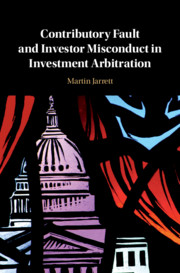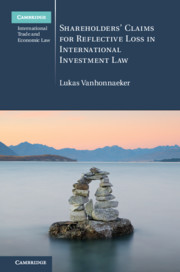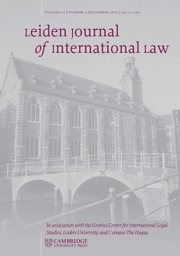Contributory Fault and Investor Misconduct in Investment Arbitration
Investors must be held to account for their flawed contributions or otherwise wrongful conduct, but exactly what 'holding to account' means remains an enigma. Opinions vary on whether such circumstances are relevant to admissibility, jurisdiction, liability, or remedies. Reasoning from certain proposed axioms, this book suggests that such circumstances are only relevant to liability, meaning that the legal concepts that they activate, contributory fault and illegality, are defences. Three defences are identified: mismanagement, investment reprisal, and post-establishment illegality. While they might lack formal recognition, arbitral tribunals have implicitly applied them in multiple investment arbitrations. In detailing their legal content, special attention is paid to resolving the problems that they raise relating to causation, apportionment of liability, distinguishing these defences from their conceptual cousins, and arbitral tribunals' jurisdiction over pleas based on investor misconduct. The result is a restatement of the rules on contributory fault and investor misconduct applicable in investment arbitrations.
- Proposes a theory on how rules of international investment law can be categorised according to their legal functions
- Constructs a definition of 'defence' and develops a theory on causation in the law
- Devises a method for reason-based apportionments of liability, for cases involving contributory fault
- Explores different forms of investor misconduct, and the rules for each mismanagement, investment reprisal, and post-establishment illegality are laid down
Reviews & endorsements
‘This is a serious piece of scholarship which will be consulted, challenged and referred to in the future by academics and practitioners in the area.’ Elena Blanco, Manchester Journal of International Economic Law
‘Dr Jarrett’s book presents a deep intellectual conceptualisation of vexed issues in contributory fault and investor misconduct in investment arbitration. It sets the rules on sound foundation, clarifies the myriad of confusion, and shines a light through the difficulties that have plagued the relevant questions. Consequently, it should be of great use to a variety of actors dealing with this field.’ Emmanuel Laryea, ICSID Review
‘Jarrett’s efforts to bring clarity and consistency to this developing area of investment law should be applauded.’ George von Mehren and Mark Stadnyk, Journal of World Investment and Trade
‘… the book offers a thought-provoking contribution to the literature on international investment law. It provides a rich, novel, and interesting study of how investor misconduct ought to factor into the analysis of State responsibility in investor-State arbitration claims. Jarrett offers rules that could conceivably form a basis for future debate and reforms, underpinned by a detailed and nuanced discussion that grapples with the structure, content and implications of such rules for investment claims.’ Esmé Shirlow, European Journal of International Law
‘His book is not only a critique of existing doctrine and practice but also a bold proposal for reform, including concrete solutions in the form of ready-to-use rules for apportionment … It is hoped that future disputants, armed with Jarrett’s proposals, will encourage tribunals to refine their approach to these matters.’ Johannes Fahner, Arbitration International
‘… a creative inspiration for anyone thinking broadly and conceptually about contributory fault and investor misconduct in investment arbitration.’ Markus P. Beham, European Yearbook of International Economic Law
Product details
August 2019Hardback
9781108481403
202 pages
235 × 156 × 15 mm
0.42kg
Available
Table of Contents
- 1. A schematic of international investment law
- 2. A definition of defence
- 3. A theory of causation for international investment law
- 4. Mismanagement
- 5. Investment reprisal and post-establishment illegality
- 6. A restatement of contributory fault and investor misconduct in international investment law.







